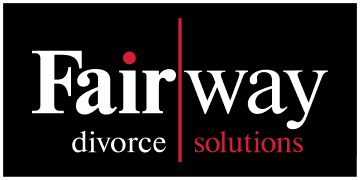Divorce filing
An agreement can be reached in several ways. A more traditional but somewhat costly and time-consuming way is where each party hires a divorce lawyer and then argues their case. The more cost-effective and increasingly faster way, often resulting in better outcomes, is known as Alternative Dispute Resolution (ADR). This methodology includes mediation and arbitration. Fairway Divorce Solutions services falls under the Alternative Dispute Resolution definition and uses a proprietary model known as Independently Negotiated Resolution™ (INR) to bring resolution and agreement on all issues. Once you have agreed on all the terms and it has been drafted into a binding separation agreement the next step is to file for divorce. Since you have used an alternative dispute resolution company to mediate your decisions, moving to the next step and filing for divorce is.
What is a Separation Agreement?
A separation agreement is a legally binding agreement signed between the two spouses which contains all the decisions that were made. The contract sets out each party’s issues and rights with regards to child and spousal support, custody, and access, property and debts.
What does it mean to file for Divorce?
Once you have entered into a separation agreement that captures all the terms of your settlement then you can file for divorce (assuming you meet the time requirement). The divorce judgement terms will reflect the same terms in your agreement. In Canada, divorces are dealt with at the Provincial level but will be registered nationally. The Federal Divorce Act governs divorce in Canada. Each Province does have its own requirements to ensure you are eligible to file in that Province. Once the court approves your divorce, which is often just ensuring you have filled the paperwork out properly and if you have children, that you provided for them, you will receive by mail, your Divorce Decree certificate which states that you are officially divorced.
In an uncontested divorce, both parties agree on all the important issues. This means they both agree on things like how to split the family property, who has child custody, alimony and parenting arrangements. Since they agree on everything, uncontested divorces are usually quicker, cheaper, and less stressful. The couple doesn't have to go to family court much, and the process is smoother.
In a contested divorce, the two people do not agree. They'll go to a law firm and a judge has to step in to help decide these things. The divorce proceedings take longer, cost more money, and are more stressful.
With our mediation services, we independently guide you through a step-by-step process that resolves all financial and parenting issues. Our divorce mediation program ensures that everyone becomes an empowered and informed decision-maker and that emotions do not interfere with sound decision-making.
Your separation can be finalized in less than 120 days of negotiation, and you can move on to a great life after divorce.
If you have resolved your problems, have no issues, or have a signed separation agreement, you can apply for your divorce under the no-fault rules that simply require you to be living separate and apart for one year.
Contrasting the no-fault divorce with the fault divorce, fault divorce can be filed under the grounds of adultery or cruelty. In these situations, you may be granted a divorce earlier than one year, but the cost both emotionally and financially may not justify getting a divorce a few months sooner than if you wait one year. Plus, the outcome of your issues is not dependent on whether it is fault or no-fault; therefore, we see very few divorces filed this way anymore.
At Fairway, we offer this service as part of our overall approach to having a one-stop shop. So even if you did not use us for mediating your issues and drafting your separation agreement, we are here to help you file for divorce most efficiently and cost-effectively.
Alternative Dispute Resolution (ADR) refers to means of settling conflicts outside of litigation with the help of a third party. Some common forms of ADR include mediation and arbitration. In cases of divorce, families must attempt alternative dispute resolution services before going to court, and legal advisers have a duty to inform clients of this unless it is inappropriate. Fairway Divorce Solutions’ services fall under the Alternative Dispute Resolution definition and use a proprietary model called Independently Negotiated Resolution™ (INR) to bring resolution and agreement on all issues in a cost- and time-effective manner.
Once you have entered into a separation agreement that captures all the terms of your settlement, you can file for divorce (assuming you meet the time requirement). The divorce judgment terms will reflect the same terms in your agreement unless spousal support, child support, or parenting have been updated since signing.
Categories
- Separation Agreement
- Property Division
- Child Support
- Spousal Support
- Divorce filing
- Prenuptial Postnuptial and Cohabitation Agreements
- Nurtured Children’s and Co-Parenting Plan™
- Co-Parenting and Custody
- General Fairway Divorce Questions
- The Fairway Method
- Locations
- Nurtured Co-Parenting Plan
- Divorce Mediation
- Custody Decision Making
- Child Custody
- Independent Legal Advice


